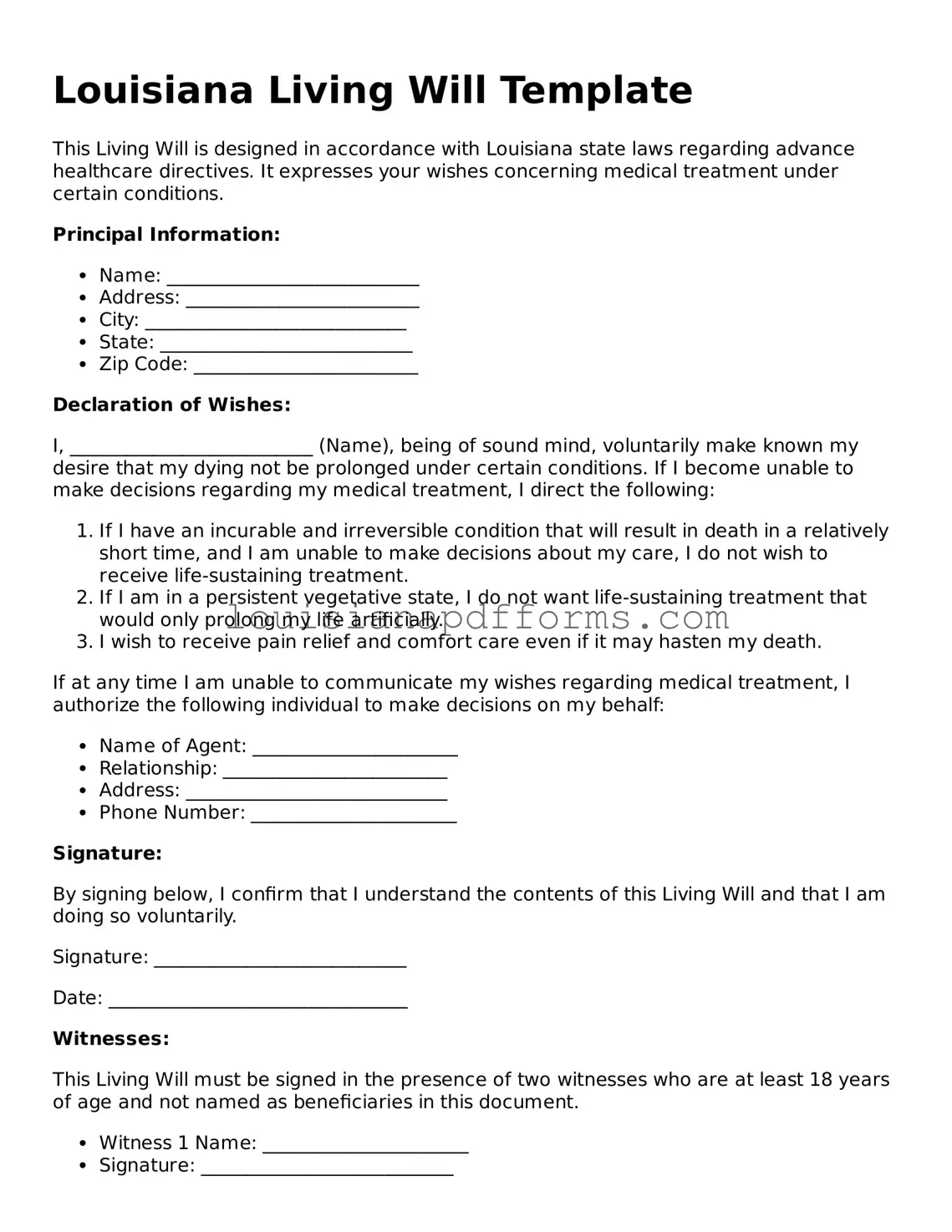Louisiana Living Will Form
A Louisiana Living Will form is a legal document that allows individuals to outline their preferences for medical treatment in the event they become unable to communicate their wishes. This form is essential for ensuring that a person's healthcare decisions align with their values and desires. By specifying treatment options, individuals can provide clear guidance to their loved ones and healthcare providers during critical times.
Access My Document Now

Louisiana Living Will Form
Access My Document Now

Access My Document Now
or
Free Living Will
You’re halfway through — finish the form
Edit, save, and download your completed Living Will online.